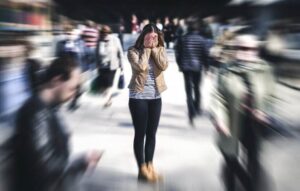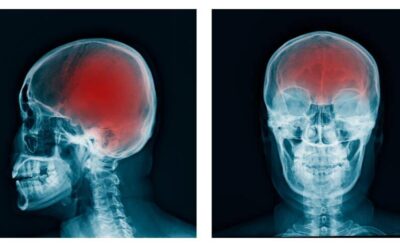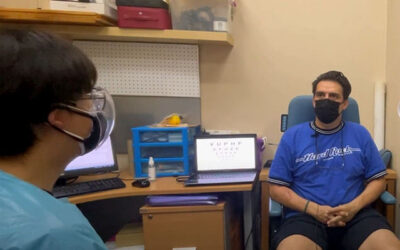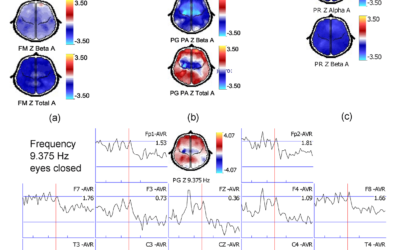Binocular vision dysfunction (BVD) is a prevalent eye condition often emerging after a traumatic brain injury (TBI), known to cause anxiety and panic attacks. Normally, binocular vision allows us to see a singular, clear image using both eyes, with each eye sending a unique visual input to the brain. The brain’s visual cortex then merges these two images into one coherent image. However, when there’s a misalignment in the eyes, this fusion becomes challenging, leading to BVD. This dysfunction triggers various symptoms like double vision, light sensitivity, poor depth perception, difficulty in reading, reduced attention span, dizziness, disorientation, trouble in crowded places, anxiety, panic attacks, nausea, vomiting, and neck or shoulder pain.
BVD can lead to severe anxiety in extreme cases, particularly when symptoms like dizziness are so intense that they can cause panic attacks, even from simple activities like walking outside. Unawareness of BVD can exacerbate this anxiety due to unexplained symptoms. Additionally, BVD-induced anxiety might lead to agoraphobia, an intense fear of leaving home. Busy environments can overwhelm the senses and trigger panic attacks. Moreover, BVD can diminish attention, affecting performance at work or school, further increasing anxiety.
Regarding treatment, while anti-anxiety medications can be effective for certain types of anxiety, they might not work if the anxiety stems from BVD. Some of these medications might even have visual side effects that worsen BVD symptoms. The initial step in addressing anxiety caused by BVD is to undergo a Functional Vision Evaluation. This evaluation can identify issues with eye teaming, tracking, and other necessary skills for binocular vision, indicating if BVD is the root cause of anxiety.
Treating BVD typically involves the use of prism spatial lenses, designed to realign vision and alleviate symptoms like eye strain and dizziness. These lenses can reduce BVD symptoms by 30-50 percent almost instantly and, over time, by up to 70-80 percent. In certain cases, neuro-optometric rehabilitation is also recommended in conjunction with prism lenses. This rehabilitation enhances the communication between the eyes and brain, thereby improving visual processing.
Anxiety, particularly when linked to an undiagnosed vision problem like BVD, can significantly affect one’s quality of life. If you’re experiencing anxiety, it might be related to a vision issue. Scheduling a comprehensive eye and vision evaluation with an eye doctor is a crucial step towards better understanding and potentially improving your condition.




